
ADVOCATE: Thailand’s Current Political Situation with Kunthida Rungruengkiat
May 20, 2024
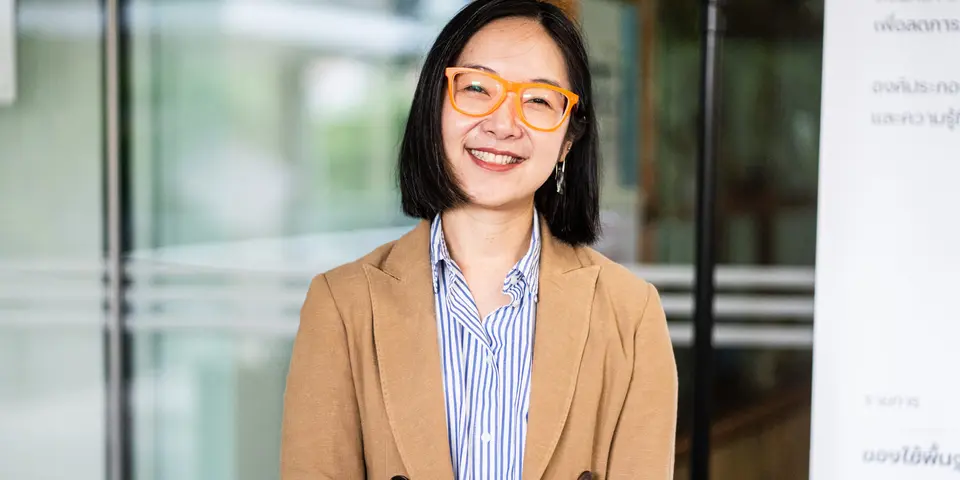
INTRODUCTION
You’re now listening to “Advocate” by APHR, ASEAN Parliamentarians for Human Rights. APHR is a network of current and former parliamentarians from Southeast Asia who use their unique position to advance human rights and democracy in the region.
Hello, I’m Karina Tehusijarana, Media Manager of APHR. I’ll be your host for today and today we’ll be talking with APHR Member and Former Thai Member of Parliament Kunthida Rungruengkiat.
Hi Karina, Good Afternoon.
Good afternoon, thank you for being here with us.
Thank you for having me.
Kunthida Rungruengkiat is an academic and a politician. She was a member of parliament and the deputy leader of the Future Forward Party. Her policy portfolio includes education reform and early childhood education improvement. After the disbandment of the Future Forward Party by the Constitutional Court, she faces a 10 years ban from contesting in any election. She is currently the director of Progressive Movement Foundation.
Today we will talk about the current political situation in Thailand and the role of Thai’s MPs and Southeast Asian’s MPs in improving the human rights situation in the country.
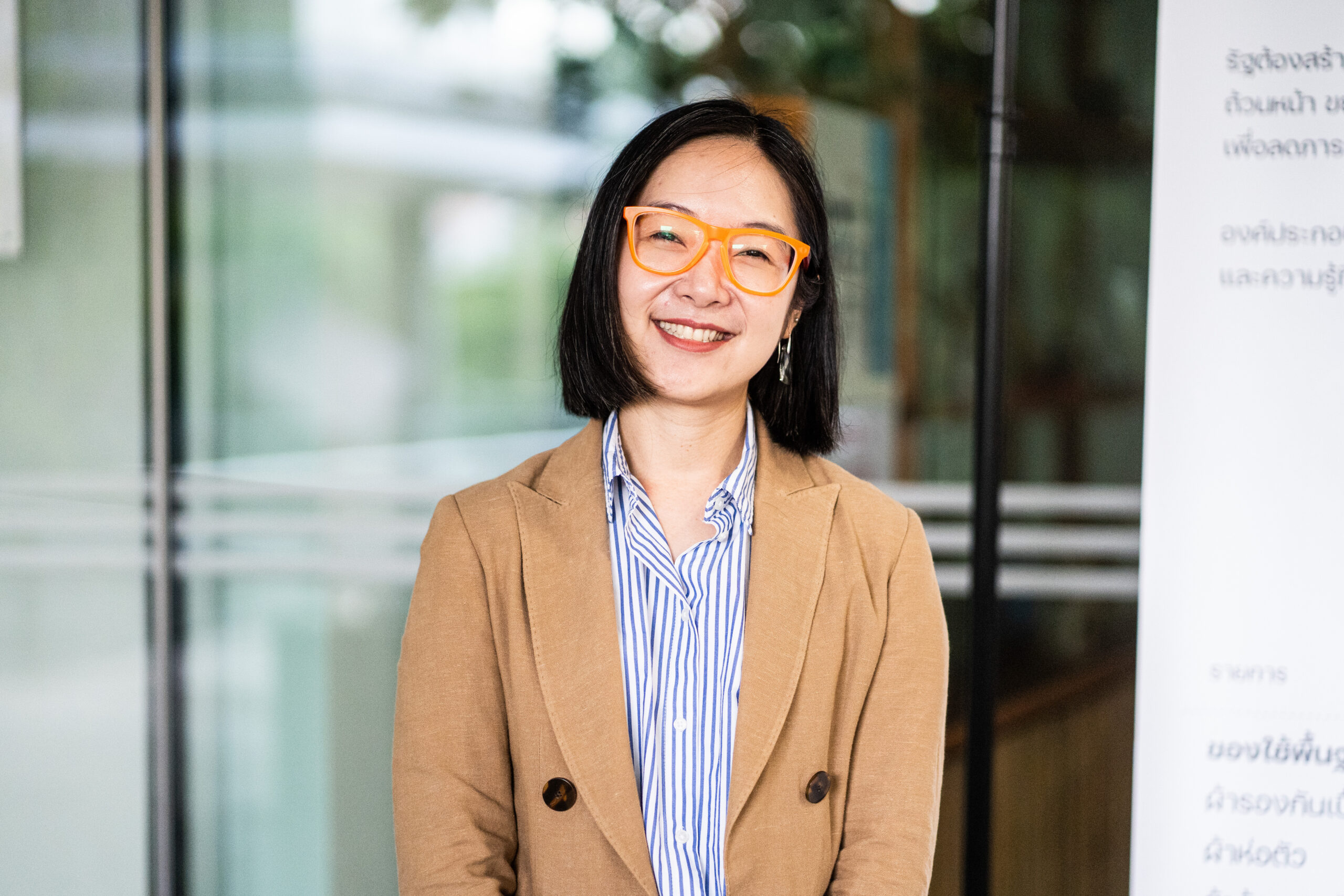
INTERVIEW
The Preambule
Thanks again for being with us Kun Kunthida, before we start talking about the situation in Thailand, could you tell us a little bit about your background and how you first entered politics?
Depending on how widely you interpret politics. But I was an educator before I was teaching in high school and in universities. But I have always had politics at the back of my mind since the day I was doing my high school year as an exchange student in Finland, where I started witnessing politics at the local level, seeing people around me joining politics and it kind of stayed at the back of my mind.
I came back to Thailand, did my degrees and went to Finland. I did another degree and came back. And when I started working, I think I joined the first rally as a demonstration for the referendum of the 2017 constitution of Thailand. So I was crafting a campaign called reading before you cast your vote. So, you know, reading the draft of the constitution, which was so confusing and complex and the question itself was crafted in a way that it was so difficult for people to understand.
So I was trying to advocate for that before I joined the political party. So I have my interest in this. And then when the Future Forward Party was formed, I was invited to join by the secretary general back then, Professor Piyabutr.
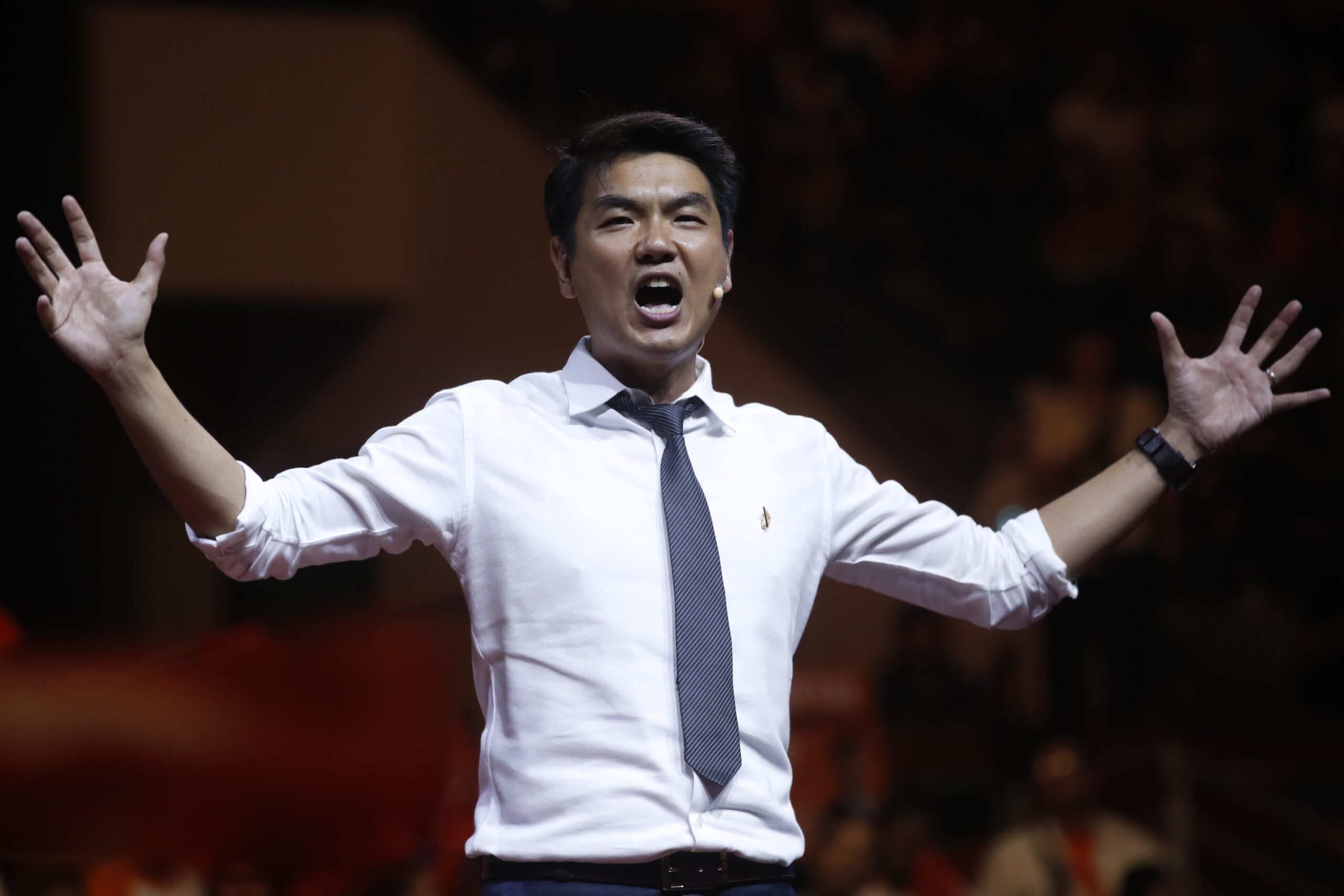
I was just expecting that I could advocate for change on a larger scale. Back then, I did not expect that I would be elected as a deputy leader. But my interest in reforming the education system is there and I think if I could amplify my voice, then it would be a great opportunity.
Joined the APHR
And how did you first learn about APHR and end up joining?
I think that was when I was already a parliamentarian. I think I was invited to join back then. Well, I was a parliamentarian for only eleven months. It was a short period of time, but back then I was invited to join. And I see, you know, the portfolio and what APHR has advocated. When you, even though you do education, you cannot just ignore human rights.
With education in Thailand, there are a lot of human rights issues that need to be fixed. So I realized that I could also advocate at an international level as well that there are these human rights issues in the education sector in Thailand that need attention, that need a lot of voices, that need to be heard, so that changes would come.
APHR Works
Thank you. Can you tell us a little bit about APHR activities that you have been involved with? As far as I know, APHR this year had an event in the Thai parliament, and participated in the Thai parliament. If you could tell us a little bit about that.
Perhaps I could share the launch of the report of parliamentarians at risk. First, I was in the launch of the reports in two different years, and who faced the ban and became that parliamentarian at risk. The political Future Forward was disturbed. The executive members faced the ban and our rights are being taken away.
The rights to contest in the future and also other issues. Back then, our parliamentarian friends and colleagues could not really speak openly in the parliament and such. Back then, I joined the launch. I spoke about this issue a couple of weeks ago. I sat in the same kind of launch, talking about the same thing that happened to my colleagues with the Move Forward Party.
We’ve come to the point where things happen in cycles, and the cycle seems to be quite vicious in the situation in Thailand. So I was really honored and thankful for APHR to, you know, stand with us in solidarity with the report and also with the launch of the report, so that we could share what’s going on in Thailand. So I think this launch of the report, two launches, even though, I mean, the content of the report is not inspiring, it’s a little bit sad, but I’m really proud that I could join those two activities.
Another activity that I was really proud of was the Fact-Finding Mission in Timor Leste, where I joined and the topic was discussed. And the fact that we were looking for was about Internet freedom, which is also the basic human rights issue in Timor Leste. And it has been extremely interesting, you know, with the country that starts to have this system to try to ensure that, you know, the basic infrastructure can lead to a better human rights situation. You know, sometimes it’s all about the Internet infrastructure, whether people can really access the information or not, whether the press and the media is protected and able to express and really talk about things that they should be talking about. So that is another mission that I am really proud of.
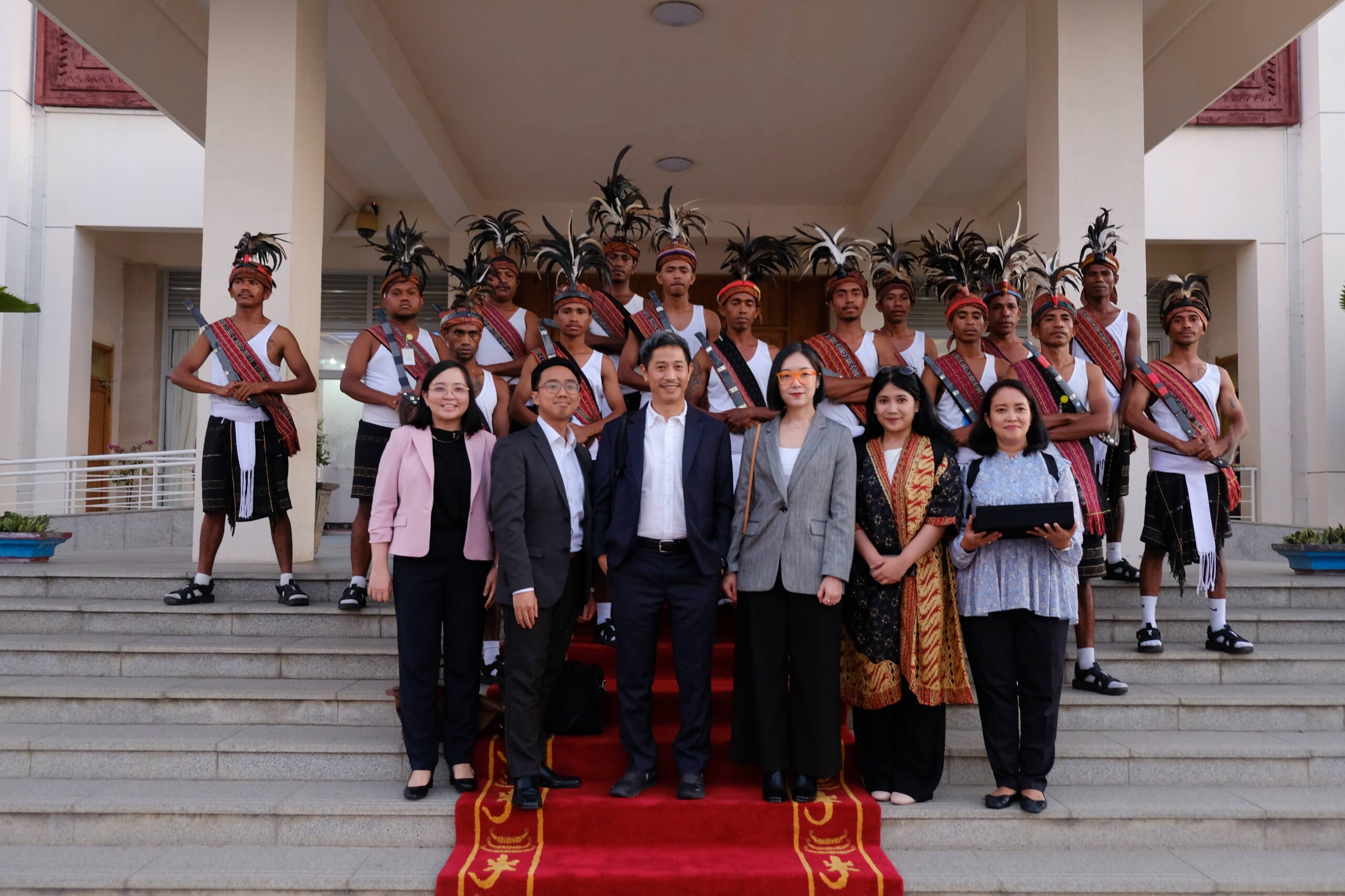
Challenges Inside the Parliament
Thank you so much, Kun Kunthida. Maybe now we can talk a little bit more about the situation in Thailand. As you said, you were only a MP for less than a year, slightly eleven months. But in your experience, in your short experience as an MP, can you share, like, what obstacles you faced? Obviously, there was the disbandment of the party, but within the legislative process itself, what kind of obstacles are there for political and legal reform? And are there any entry points that you could suggest? If a CSO or someone wanted to advocate through the parliament, are there any entry points that you would suggest?
I really think that it’s not an entry point as such, but I think it’s extremely important that the CSO and also the political sector are, you know, they must have to work together because with more voices, then the legislative branch in general would have to listen.
During the time that I was an MP, and a little bit after that as well, I was sitting in the committee drafting the National Education act. And speaking of, you know, the obstacles, it took one year and I think 22 days in. Yeah, in the second reading, it’s extremely long, and they could never end.
I mean, in terms of it was long. It was difficult to reach a consensus. And that is also because we still have the senators who were elected. No, we can’t say they were elected. They were appointed back then by the military, 250 of them. They have the full participation in all draft laws that can be interpreted as reform law. So it’s really vague, right, the interpretation. So basically, any laws that could change something would be interpreted as reform laws. And that is a really, really big obstacle for us. So that’s why it took a really long time. And it seems like it never ends.
And when it entered the parliament in the third reading, it just, you know, I think we deliberated for, like, I think, ten articles, and then the terms, the administration of the previous government ended. And you see how that caused the delay into everything. And when this is an extremely important draft law, without this, then other changes in the smaller laws could not begin because it needs these key draft laws. So it has been really difficult to work with such a law that could never really reach a consensus and it impedes the whole system. That is more a systematic obstacle that I face.
Another type of obstacles that I face is more on daily life as a woman parliamentarian, you know, being in the powerful older male territory. So the everyday obstacle would be more on I should be in the role of a woman who’s a secretary, who should be an assistant of something, who should not say this, and who can only talk about that topic and should not talk about that topic. So the social expectation of a woman in parliament in Thailand, I think, is still an issue that other female parliamentarians would also be facing. You know, you, what kind of clothes you wear, it shouldn’t even be an issue, right? But sometimes it poses an issue.
What can MPs and Civilians do?
Thank you. You mentioned before about how history seems to be repeating itself with the current situation with the Move Forward Party, where the Thailand Constitutional Court is currently hearing a petition from the electoral Commission to dissolve the Move Forward Party, which is similar to what happened to your former party, the Future Forward Party. Can you tell us a little bit more about this situation and what do you think parliamentarians or other civil society members can do about it?
The Constitutional Court interpreted that the election campaign of amending Article 112 or less majestic laws, which, strictly speaking in principle, have a really serious imprisonment punishment of 3 to 15 years, which of course, is an issue on human rights. So the proposal to amend it should make sense. But according to the Constitutional Court, it was interpreted as the overthrowing of constitutional monarchy. In a more simple terms, then you can, you know, you can look at it as an act of sedition, which is too harsh.
And when you look at this as in terms of parliamentarians and the parliamentarians missions, of course, we parliamentarians propose draft laws, amendment of laws. That’s the job, right? And when you are being taken that away, then it means that someone is actually resetting the benchmark of how parliamentarians in Thailand are doing their job. And I think this is quite dangerous at an institutional level.
So on that verdict on the 31 January of the Constitutional Court, it has been extended and extended for more documents, for more information, and for the court to deliberate. I think the latest extension was another 15 days, which could. I don’t know whether they will have another extension or not, but I cannot really say that 100% of this is similar. I mean, in terms of mechanism, this is similar to what I faced during my future forward days. But you can see the escalation of the cost that led to the dissolution of the party back then for the Future Forward Party. It was this financial technicality issue.
And for us executive members, we faced a ten year ban from contesting in any elections or holding any political positions. But when you look at the Move Forward Party and the executive leaders, ten years is a minimum for the ban. Because it goes back to the overthrowing of constitutional monarchy. So their threat is even larger and more serious than what I face.
And I think two things. The institutions, independent agencies in Thailand, like the constitutional court and also the election commission should remain independent, right? And the Constitutional Court in Thailand has historical records of dissolving political parties. Not just the Future Forward Party, not just the Move Forward Party.
They did it in the past with a couple of other parties before. And the solving of political parties, not just political parties, but moving forward, winning the election, pose a big threat to the democratic system of Thailand in the long run. And not only that, I already mentioned that the parliamentarians doing their job is considered overthrowing the constitutional monarchy will pose a threat to what parliamentarians can do in the long run.
The political party being dissolved is one. But the 44 MPs who propose the amendment of Lese Majeste or the other called 112, that 44 MPs could be at risk in another mechanism, in the anti corruption, anti corruption commission, that they are violating the ethical standard, it can be interpreted as such and they then will face another ban and who knows how long the ban is. So I think, I mean, I cannot even call this just an obstacle.
But this is destroying the democratic process and the faith in the parliamentary process of Thailand in the long run. You know, when people put so much faith and hope in the election that they would elect someone to be their voice and then it’s all gone.
The political parties, their MPs are just, you know, being disbanded or cannot really perform. So to me, this repeating itself on an even larger and more severe scale is destroying the democratic system of Thailand in the long run. And I’m really concerned about what the international community could do, I don’t think it’s just about standing in solidarity with us. Of course we know that you are with us. But perhaps sending louder voices about this.
To me, this is the judicial coup. Thailand is facing another type of coup d’etat at the moment where the winning political party could be disbanded. So it’s like a coup in the modern day where you don’t need tanks and guns, you need the laws in your hands and you could interpret it at anywhere you like.
Of course there’s no bloodshed, of course there’s no casualties like in the real war, but democratic system being undermined in the long run could cause other problems, the infringer of human rights and, you know, other types of problems in the long run.
So I urge you. I really urge the CSOs, international communities, to speak up louder about the accountability of these independent agencies, like the judges of the constitutional court, who make such decisions. We see that history has already repeated itself. There are people who made such decisions, and those people need to be held accountable for their decision. And I hope that by speaking up about them, well, we still could make some changes. And, you know, history doesn’t have to repeat itself.
Constitutional Amendment
Thank you, Kun Kunthida. Like you said, there are a lot of challenges right now regarding democracy, democratization in Thailand, and a lot of it, as you mentioned, like for example, the appointed Senate. That’s a product of the 2017 constitution, right? And there has been some discussion about amending the constitution. What do you think are the prospects for that right now in Thailand?
I must mention the fact that the 250 senators appointed back then will have their terms ended on 11 May. And that means, by the constitution, they have to administer the election, the senator’s election. And the number will be 200 senators being elected. Interesting enough, this is. I think this is the weirdest election ever in history that should be recorded in the Guinness Book of World Records.
First, you cannot really participate in these elections if you don’t pay 2,500 baht. Those who can vote are the candidates themselves. And in order for you to be the candidate, you have to pay 2,500 baht. And there is also the age, the minimum age required, which is 40 years old.
And the very weird complex electoral system, which is extremely indirect. You have 20 groups of professions. And first you will have to elect among your group according to your geographical, geographical, electoral place. So you elect among yourself, and then you will have to cross elect among other groups. And then you get the representatives.
And then you go from the district to the province to the national level. Like, the whole system is extremely complex. It catered to, you know, the more of the vote buying rather than the full participation. And even more so, the election Commission just released the regulations that made the candidates face difficulties in introducing themselves.
So, you know, I already mentioned, I think, a couple of issues with this upcoming election, which will happen in June and July in Thailand. And the mechanism is extremely weird. However, this new batch of senators will not be able to vote for the prime minister. But sadly they will be able to approve or reject the future constitutional court committees, more than half of them, as well as the committees of the election commission, as well as the committee of the Anti Corruption commission.
So, I mean, the role of this new batch of the Senate will really be extremely important in the future of the democratic process. And that’s why we’re campaigning for people to join. But like I said, it’s really a lot to ask a Thai citizen to pay 2,500 baht to do this. And I think you can see now how the system is being manipulated by the institutions that should remain independent but being weaponized against the people and the democratic process.
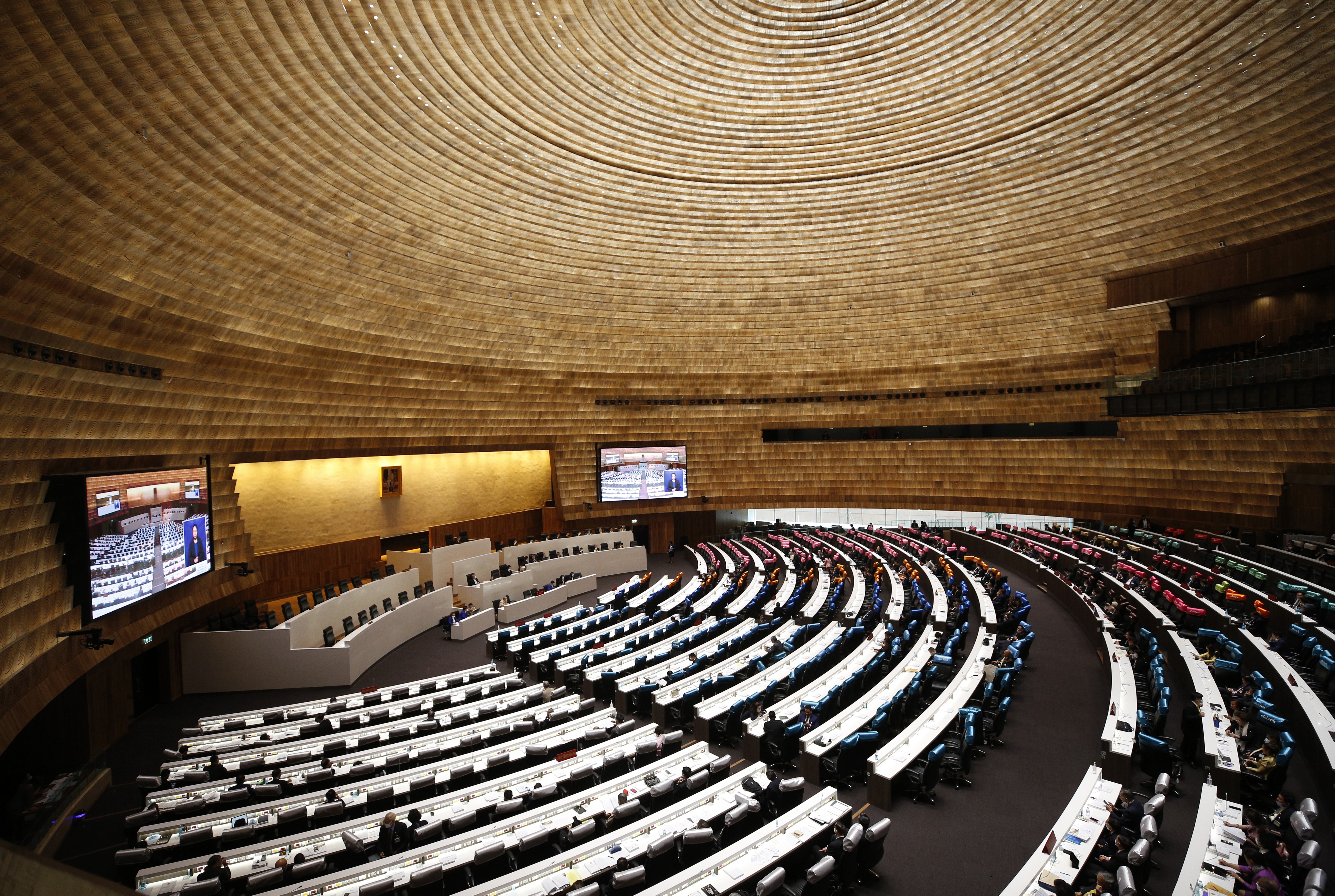
Progressive Movement Foundation
Thank you for that explanation of the very weird process. Yes, because I mean, it sounds like literally vote buying if you have to pay 2,500 baht to become a voter as well as a candidate. Currently you’re the director of the Progressive Movement foundation. Can you tell us a little bit about that foundation and what you’re currently working on?
The foundation works on the democratic civic education in many forms, formally and informally. So we organize progressive academies for different groups of people in the society who are interested in politics and in democracy. For example, the youngsters as well as the union leaders. Because to unionize in Thailand is still a big challenge due to the laws and also the, the other obstacles. And we also work at the local government level. So we do have courses for local leaders to equip them with the modern day leadership and vision as local leaders at different levels.
So this is the academy that we’re working towards, the democratic education this year. We just added another target group, which is the teachers. So we’re going to have the teachers academy as well. So this is the formal form of education. We also have the informal form of learning that is available for the public for free without any charge. So we have the YouTube channel under the umbrella of the common school YouTube channel. And there are explainer videos of different issues, for example, to explain how the senator’s election is important. So this is very recent and I think it will air soon.
And the other current issues in Thailand, we also have articles, the academic articles of different issues on labor, on capitalism, on many different issues. We also organize a hybrid library where you can sit at home and order books. And then we will send you the real books for you to read for 45 days and also send us stamps and envelopes so that you can return to us under the concept of book sharing without any cost.
We believe that making sure that people can access information and knowledge for free is also another human right that the people should have.
So these are more of the informal learning platforms that we have. The library is called reading revolutions because we believe that reading can change the world. Yeah. So we’re doing this type of advocacy, but more than that, we’re also working at the local government level because we also believe that grassroots democracy is extremely important.
And, you know, to make sure that the democracy at that level functions and can be, can put people in the position where they believe that democracy and democratic process like this function in the whole of Thailand is also our mission to keep proving to them that electing someone who is good, who have policy to really make their hometown better, is more important than electing someone that they know, perhaps for a really long time, but he or she may not really, really do much, or it’s a family dynasty kind of politics.
So we’re building democracy also at the grassroots level by helping and providing consultation to many municipalities across Thailand in the missions that they have to do. For example, drinkable water, clean water. So how to give the service of clean water to the population in the municipalities, how to make good daycares available in the area. How can they ensure that the open participation is for everyone? We help them to introduce, you know, complaints, an online complaint system so they don’t have to really go to the municipality office to do that. We help them with telemedicine posts so that they don’t have to travel to the hospital in order to do the basic checkups, for example.
So this is proof that they can start seeing that, you know, leaders who actually work towards the needs of the people are extremely important, and that is done through the election. So they have to elect someone who really has the vision and who really has the policy portfolio that is aligned with the demands of the people in the area. So these are basically the main work of the progressive movement foundation.
What can Southeast Asian MPs do?
Thank you, Kun Kunthida. And it’s very interesting to hear, like, all the different programs, and I hope that it can also inspire similar types of movements in other southeast asian countries. Just the last, I guess, for the last question for this podcast. As you know, APHR was founded with the idea of creating regional solidarity among southeast asian MPs to help promote human rights and democracy across Southeast Asia. You mentioned earlier that, you know, certain things that the international community can do to help improve the situation in Thailand. Could you maybe speak a little more about, like, what do you think Southeast Asian parliamentarians in particular, could do to help advance the human rights and democracy in Thailand?
In solidarity, I think advocating for the principles of democracy, that it, you know, should be all democratic in our region. I mean, the process of democracy would have a really basic system, right? And we should or adhere to those values and also those systems. And I think in this region in particular, having a better democratic system in one country also means a better situation in other countries.
So this is an extremely important point that we really have to partner. And we cannot look at one individual country as an individual country, but we have to really look at it as a region. For example, if the democracy in Thailand is stabilized, then we could take a look at, you know, this could be the spillover effect to Myanmar and also to Cambodia, for example.
To me, faith and hope are contagious. And if you see the success of the democratic struggle, no matter what form in one country, in the region, it would spread to another country, and it could help the region as a whole.
And also with APHR, I learned a lot about different situations in different countries. And these learning experiences are important. They’re not just successes. There’s also mistakes, so that we can also learn from the success, and we also can learn to avoid the mistakes in the future. So the APHR and the network also gave me these valuable lessons to work in my political advocacy, even though I’m no longer in the parliament. But for us, we realized that working outside parliament and working inside parliament, working at the local government, working at the regional level, we cannot look at each separately. We have to look at it as a movement, rather than just looking at it bit by bit, piece by piece.
Thank you so much, Kun Kunthida. And thank you again for taking the time to join us in this podcast.
CLOSING
That was an episode of “Advocate” by APHR, ASEAN Parliamentarians for Human Rights.
Drop your ideas for podcast topics or interview subjects through [email protected], and let us know what you thought about this episode!
Before we sign off, I would like to thank you for your support and for tuning in.
I’m Karina Tehusijarana, see you soon!
ASEAN Parliamentarians for Human Rights (APHR) was founded in June 2013 with the objective of promoting democracy and human rights across Southeast Asia. Our founding members include many of the region's most progressive Members of Parliament (MPs), with a proven track record of human rights advocacy work.